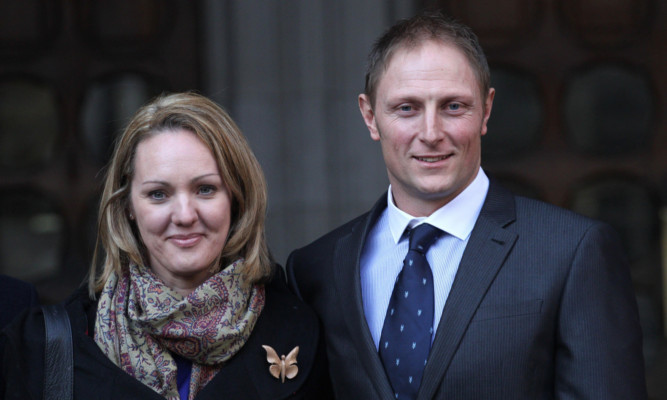Lawyers for an SAS sniper who is due to face a retrial for illegally possessing a pistol are to challenge whether it is in the public interest to continue the prosecution, they have said.
Sergeant Danny Nightingale was originally sentenced to 18 months’ military detention after pleading guilty to illegally possessing a Glock 9mm pistol and more than 300 rounds of ammunition.
He was released after appealing against his sentence, and last month the Court of Appeal also quashed his conviction, saying a fresh court martial should be held.
Appeal judges ruled that the judge at Sgt Nightingale’s court martial in November had given an “uninvited sentence indication” and “improperly narrowed” the soldier’s “freedom of choice” to enter a plea.
Sgt Nightingale, 38, from Crewe, Cheshire, is due to appear at a preparatory hearing at the Military Court Centre in Bulford, Wiltshire, on May 1, where his lawyers will challenge whether it is in the public interest to continue the prosecution.
Lawyer Simon McKay said: “On May 1 we will identify three or four quite important legal issues which will need to be heard, including whether it is in the public interest to continue the prosecution.”
Sgt Nightingale will plead not guilty at his retrial, and Mr McKay said the defence team will argue that a brain injury affecting his memory is a critical element in the case.
Mr McKay said it could be some time before a retrial is held, as some legal discussions could go to the Court of Appeal and even the Supreme Court.
But he said they were confident of a good outcome, adding: “There has always been a degree of confidence within the defence team because we know Danny and we know precisely what impact the brain injury has had on him.
“Danny is a fighter, he belongs to one of the finest regiments in the world.
“He just grabs his boot straps and says ‘Right, if we need to fight on, we fight on’ – that’s characteristic of him, and his family are behind him.”
He said the sniper has “nothing to lose” by fighting on: “At the end of the hearing last month the Lord Chief Justice made it very clear in express terms that the sentence should not be increased.
“Even if he takes it all the way to a trial, even if he goes to the Court of Appeal, even if he goes to the Supreme Court, the outcome if he is found guilty – the sentence – will be that.”
